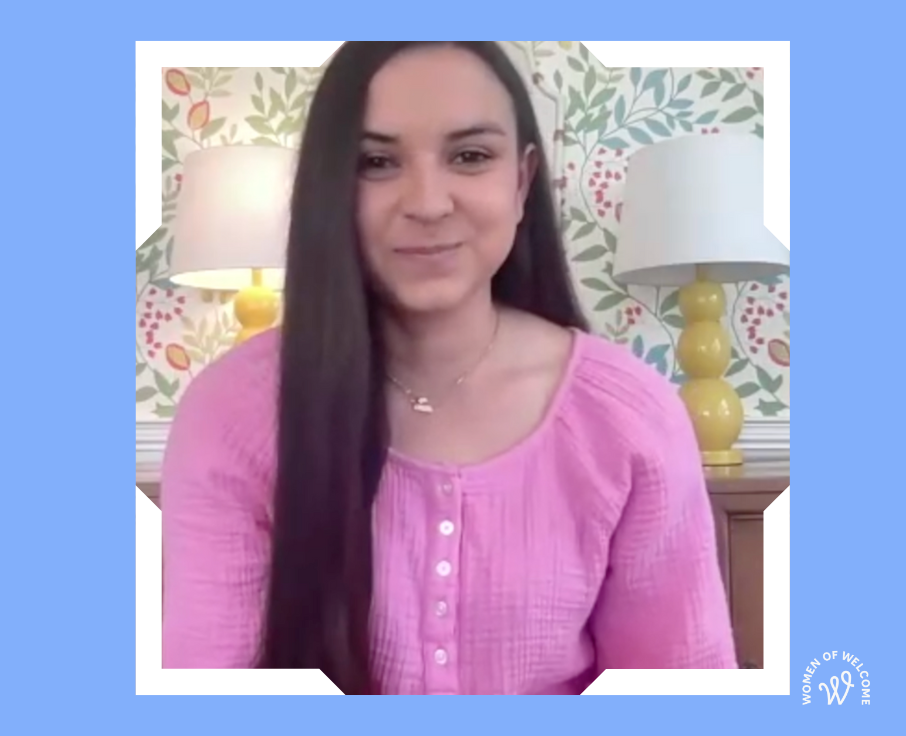When Caroline looks back on her life, she sees a clear thread God has been weaving all along—a heart for the vulnerable.
Growing up in a Christian home, she watched her father do mission work in Kenya. It was there that Caroline first encountered refugees—families who had fled war, violence, and instability in search of safety. “My heart started to grow for the vulnerable, poor, and marginalized,” she recalls.
That heart only grew as she pursued a degree in early childhood education and began teaching in a school with several newcomer students. She walked with children and their families as they learned to navigate a new culture, language, and education system.
Who Are Unaccompanied Minors?
Caroline and her husband first got involved in foster care seven years ago. Because of their growing love for immigrants and refugees, they felt a particular call to open their home to unaccompanied minors—children who arrive at the U.S. border without a parent or guardian.
“Typically they’re coming here to be with a sponsor, usually a family member or someone who is close with their family” Caroline explains. She says a lot of time they’re fleeing gang violence, extortion, or other dangerous situations. “Parents make the heartbreaking decision to send their children alone…because they feel like this is their only hope for a better life.”
In some cases, children are separated from their families along the journey and placed in foster care programs. For Caroline’s family, welcoming these children wasn’t just a calling—it was a sacred opportunity to love and see Christ in the face of the vulnerable.
Learning to See Differently
The process has taught Caroline that “these are people just like you and me—simply born in a different place,” Caroline says. Their parents want love, acceptance, and safety for their kids, just like we do. And the kids? They just want to be kids.
Proximity changed everything. Being up close—seeing the trauma children carried, hearing their stories, watching them laugh and play—dispelled myths and opened her eyes to truth. “A lot of rhetoric is being spread about these immigrants and refugees that is not true.” But Caroline shares that when you’re in relationship with them, you see the image of God. And you want to share that truth with others.
From Fear to Faith
For families considering getting involved, Caroline acknowledges the fear that often surfaces—fear of the unknown, of judgment from others, or of being unprepared. But she encourages others to shift perspective.
She says she understands those fears are real, but it is helpful to shift our perspectives and imagine the fear these children are carrying. “Think past the fear,” she encourages others. “Think of all the positive that could come out of it. When we said yes, we saw God move in amazing and mighty ways we never could’ve imagined.”
Their “yes” led to eight different children coming through their home—some for just a day. One child stayed much longer. After four years as his foster parents, Caroline and her husband were able to adopt their son.
“It doesn’t usually turn into adoption,” she says, but his story was complicated, and they were grateful God allowed them to be a part of it.
Real Stories Change Hearts
Throughout this journey, Caroline’s family has had countless conversations with others—sharing real stories, challenging assumptions, and inviting others into this sacred work.
Relationship is what changes hearts and minds. Not headlines. Not fear. But showing up and being willing to love.
Caroline hopes others will consider saying yes too. “If there’s a program like this near you, I encourage you to look into it. Our lives have been forever changed. I’m so thankful we said yes—and God did the rest.”
Watch the full interview with Caroline below to hear more about her journey, the children she’s welcomed, and what it means to choose proximity and say yes to love.

 This resource answers the most common questions Christians have about immigration and equips you to engage conversations with biblical clarity, truth, and grace.
This resource answers the most common questions Christians have about immigration and equips you to engage conversations with biblical clarity, truth, and grace.